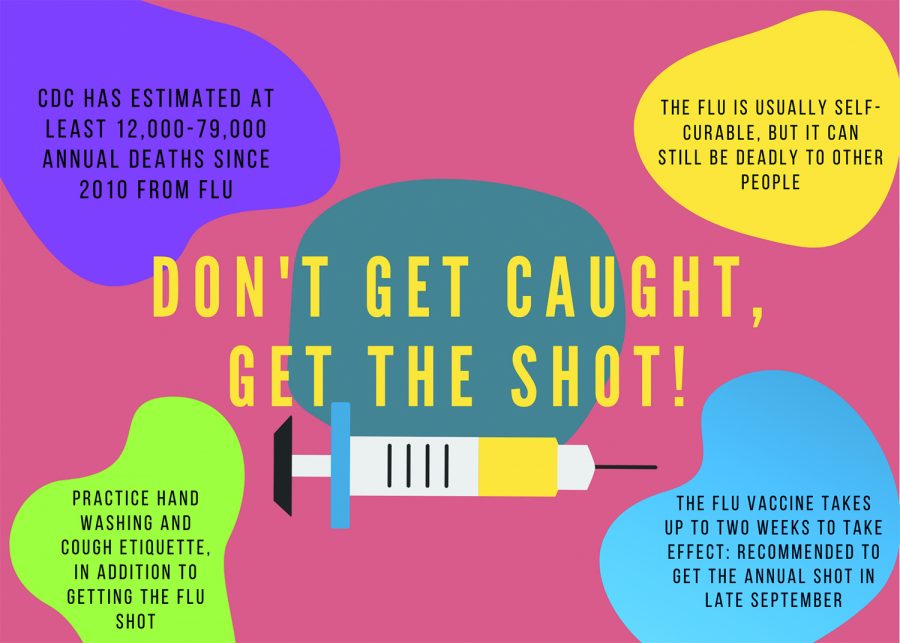Keeping Healthy
Flu season is rapidly increasing around the states. Influenza, commonly known as the flu, is a
highly contagious virus that primarily affects the nose, throat and lungs. While this illness is usually self-curable, it can still be deadly to others. The Centers for Disease Control and Prevention, has already reported a multitude of deaths linked to the flu.
Onset of this virus can be very sudden, but the symptoms are easy to spot. The common symptoms include chills, sore throat, coughing more than usual, running nose or fatigue. Having a fever before the actual illness is ultimately really common before getting the flu, but it is not always persistent.
CDC has estimated at least 12,000-79,000 annual deaths since 2010. According to Riverside University Health Program, the first severe case of the flu was caught by a four year old boy in California on Sept. 10. North Carolina also reported another fatal death during the first week of October, as well as other states.
Contrary to last year’s dreadful flu season, 2019’s season is seemingly not as bad. However, this does not mean one should skip the flu shot, as recommended by doctors. Since the flu is different every year, the flu shot changes the antibodies of the most frequent strain of the virus going around. The CDC stated that the flu vaccine takes up to two weeks for the protection to fully come into play, and therefore is recommended to get the annual shot in late September.
“The flu is highly contagious even just by touch, so practice hand washing and cough etiquette, in addition to getting the flu shot,” said the junior and senior school nurse, Benny Bolin.
For those unable to get a flu shot, there is another option called the FluMist. FluMist is a nose spray that is administered by injecting the vaccine into a nostril. This inhalant is considered to be alive and active vaccine. However, there are some side effects such as runny nose, cough and congestion.
If you don’t want to do either of those, then stay home until at least 24 hours after the fever is gone and seek the medical care you need. An Australian influenza specialist, Dr. Alan Hampson, stated that being immediately going back to work will not speed up the recovery and will allow the virus to spread. For this reason, consider staying home to not risk getting others sick and to allow yourself to recover.
“You have to stay 24 hours after you’re free of the flu without using Tylenol, Advil or any fever reducing medications,” said Nurse Bolin. “They have to stay home, it’s not a ‘should they?’ It’s a have to. It is in many, if not all, work policies and to help prevent keep the flu from spreading.”

Sophomore Gisselle Alvillar enjoys to listen to music, watching Netflix, and playing tennis. She plans on going to either OU or NYU to become a journalist.







